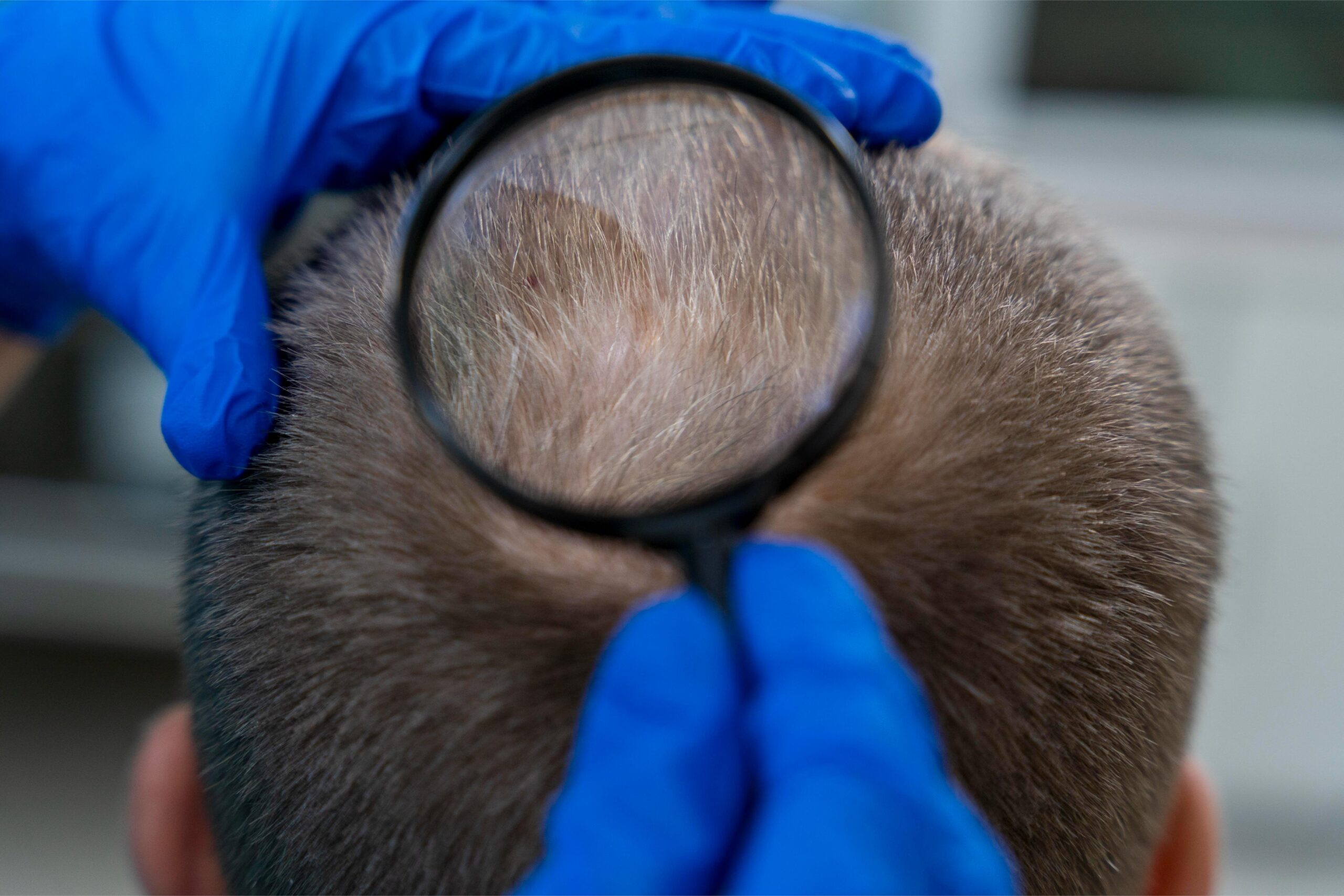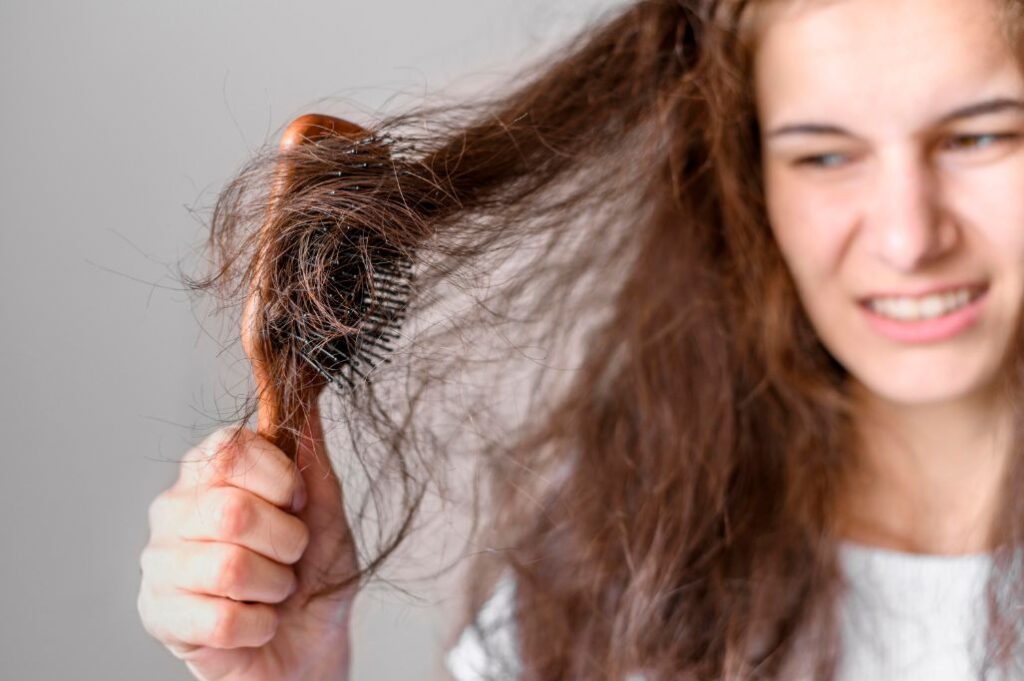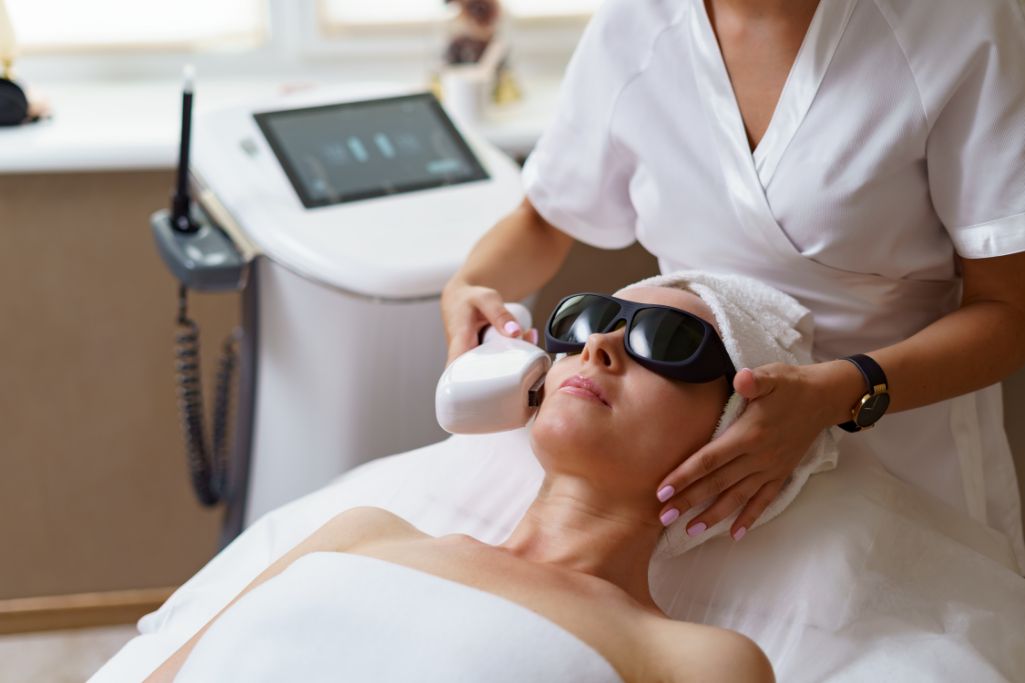
Daily hair loss is typical and occurs naturally as part of your hair’s daily development cycle. You will always have a full head of hair since most people’s lost hair grows back. On the other hand, illness, hormone fluctuations, stress, ageing, and genetic disorders might interfere with your hair’s cycle. There is a greater loss of hair and infrequent regrowth of new strands. With early detection and best hair treatments in Aurangabad of hair loss from Dr. Waseemuddin Shaikh, you can have all hair fall solutions.
Kinds of Hair Loss
It is important to know the type of hair fall as the treatment you take is decided by that. Whereas, Different types of hair loss include:
- Alopecia Androgenetic
Androgenetic alopecia is the primary cause of hair loss, impacting about 50 million men and 30 million women worldwide. Male pattern or female pattern hair loss is known as androgenetic alopecia, a genetic condition that can be managed with medication or surgery.
- Male-Pattern Baldness
Male baldness can occur at any point after adolescence and last for years or even decades. It starts above the temples, moves around the top and sides of the head, and frequently leaves behind a ring of hair on the scalp’s base. Baldness in men is often the result of male pattern hair loss.
- Female-Pattern Baldness
Women’s hair usually does not thin at the hairline; rather, it thins gradually over the scalp. While hair loss can occur at any time after puberty, many women regard this kind of loss as a typical aspect of aging. Though it seldom happens, female pattern hair loss can sometimes lead to baldness.
- Telogen Effluvium
Telogen effluvium is a temporary balding of the scalp brought on by modifications to the hair’s growth cycle. Hair loss and progressive thinning occur when many hairs enter the resting phase simultaneously.
- Anagen Effluvium
Anagen effluvium is the term for the rapid loss of hair caused by medicinal therapies such as chemotherapy. These potent, fast-acting medications kill cancer cells, but they may also prevent hair follicles from growing on the scalp and in other parts of the body. Naturally, hair usually grows back after baldness treatments are completed. Dermatologists can recommend medications to speed up treatment for hair regeneration.
- Areata Alopecia
Because alopecia areata is an autoimmune condition, healthy tissues—including hair follicles—are harmed by the immune system. It causes hair loss and inhibits the growth of new hair. This condition affects both adults and children, and hair loss can begin suddenly and dramatically. Hair loss on the scalp typically happens in little spots. Eyelashes and eyebrows are among the other body parts where hair might fall out. Over time, this disorder may lead to alopecia totalis, or complete hair loss.
- Hair Shaft Distortions
Numerous conditions affecting the hair shaft might cause hair loss. These circumstances result in thinner and thinned hair strands, which are more prone to breaking. Along the route, a hair strand breaks along its visible portion, the hair shaft, which causes the hair to fall out instead of entering the follicle. Thin, brittle hairs may proliferate and there may be a general thinning of the hair.
Kinds of Hair Loss
- Alopecia Androgenetic
Androgenetic alopecia is the primary cause of hair loss, impacting about 50 million men and 30 million women worldwide. Male pattern or female pattern hair loss is known as androgenetic alopecia, a genetic condition that can be managed with medication or surgery.
- Male-Pattern Baldness
Male baldness can occur at any point after adolescence and last for years or even decades. It starts above the temples, moves around the top and sides of the head, and frequently leaves behind a ring of hair on the scalp’s base. Baldness in men is often the result of male pattern hair loss.
- Female-Pattern Baldness
Women’s hair usually does not thin at the hairline; rather, it thins gradually over the scalp. While hair loss can occur at any time after puberty, many women regard this kind of loss as a typical aspect of aging. Though it seldom happens, female pattern hair loss can sometimes lead to baldness.
- Telogen Effluvium
Telogen effluvium is a temporary balding of the scalp brought on by modifications to the hair’s growth cycle. Hair loss and progressive thinning occur when many hairs enter the resting phase simultaneously.
How is Hair Loss Diagnosis Done?
Before diagnosing hair fall, your doctor will probably perform a physical examination, ask you about your health and family history, and ask you about your diet and hair care routine. You could also have the following tests performed in order to diagnose hair loss:
- Hormone Analysis
You can check multiple hormones if you suffer from significant hair loss. These include prolactin, DHEA, luteinizing hormone, follicular stimulating hormone, testosterone, and testosterone.
- Thyroid Function Test
The T3, T4, and TSH tests are three more crucial ones you can get. The concentrations of these hormones need to be checked.
- Serum Ferritin and Serum Iron
These tests can be used to pinpoint the exact quantities of materials such as serum ferritin and iron. The aforementioned abnormalities may cause hair loss.
- Hair Pull Test
It’s a physical examination performed by the physician. If more than three hairs fall out when the doctor removes a little portion of your hair, it is presumed that you are losing hair.
- Scalp Biopsy
During this process, a small portion of your scalp is removed, and it is examined under a microscope. It helps to know why you are losing hair.
- CBC Analysis
This test often provides the results of your body’s entire blood count.
These tests might be carried out if you see a noticeable hair loss.
What are the Treatments for Hair Loss That Control Hair Fall?
Certain forms of hair loss have effective therapies. Hair loss can be stopped, or at least halted. In certain situations, like alopecia areata, when there is sporadic hair loss, hair may regrow in a year. Hair loss can be treated with both surgical and medicinal methods.
- Medical Management
A hair specialist could recommend drugs to encourage the growth of new hair. There are many over-the-counter drugs available, but not all of them are suitable for everyone. Medication should only be taken after consulting a hair dermatologist.
- Platelet-rich plasma (PRP)
Injections of platelet-rich plasma (PRP) are becoming more and more popular for treating a range of ailments, including hair loss and sports injuries. Utilizing the patient’s own blood cells, the procedure quickens the healing process in a particular location.
- Mesotherapy
It is a process wherein numerous microscopic injections of vitamins, medications, and other substances are given into the tissue beneath the skin’s mesodermal layer in an effort to encourage the reduction of fat or cellulite.
- Hair Transplant
Hair follicles are surgically are removed from one region of the body (referred to as the “donor site”) and transplanted to a bald or balding part of the body (referred to as the “recipient site”). Pattern baldness is treated with this method.
Consult Hair Specialists Doctor
The optimum time to see a hair loss specialist is as soon as you see any of the early signs of hair loss. Since hair loss can be permanent, acting quickly can help keep your hair loss from getting worse and help you keep more of your hair. To find out the reason behind your hair loss and develop a plan of action to address it, schedule a comprehensive hair examination at the Dermaconsult clinic. With the aid of their skills and expertise, the dermatologist who specializes in hair at Dermaconsult clinic in Aurangabad will expertly lead you through the process and provide remarkable results.
Conclusion
It is essential to talk to a hair professional about the possible causes of your hair loss, as any hair loss can be emotionally taxing. Therefore, the Dermaconsult hair clinic in Aurangabad provides efficient treatments and examinations to halt hair loss and promote the growth of new hair. The highly skilled surgeons at Dermaconsult Clinic, along with state-of-the-art equipment, guarantee that the results will be both authentic and superior to your natural hair.
Read more about Expert Tips for Managing Dry and Frizzy Hair


